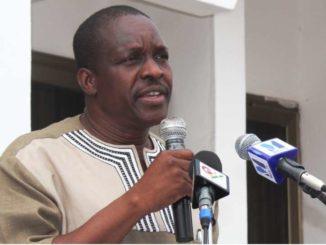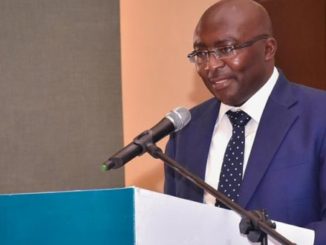
The Lands Commission is to switch to the use of a specialised drone technology for land surveying, registration and cadastral works, beginning March 2019.
Ghana is among three countries in the world to benefit from the project, which is being funded by Omidyar Network, a non-governmental organisation (NGO) that supports land rights in developing countries. It is being implemented in Ghana, Columbia and The Philippines by Micro-Aerial Project Incorporation, a firm with expertise in drone technology.
As part of arrangements for the smooth take-off of the initiative, the Chief Executive Officer (CEO) of the implementing firm, Mr Walter Volkamann, led a team of technocrats to train some officials of the Lands Commission and other partners who, in turn, will serve as trainers for others.
Training
“The Walter group arrived in Ghana three weeks ago and trained 11 technocrats from the Lands Commission and other partners to be trainers of other officials in the country.
They were trained on how to assemble the drone locally, set it up, fly it, as well as process the images that are captured.
“We are making arrangements for the local trainers to begin training the technical staff of the commission and other agencies such as the Geological Survey Department (GSD), Forestry, Town and Country Planning, as well as Local Government, by the first week of January 2019,” he added.
Drone technology
According to the director, the drone technology for mapping was far more advanced than the normal drones and would make it easy to capture accurate images, especially in areas that were inaccessible, such as disaster-prone and cloudy areas.
“This technology is a big push because if it is perfected, we can fly it to capture images from all areas to reduce the current high cost of data acquisition, where we have to rely on rented aircraft which comes with payments for permits, fuel and other associated costs.
“It will also be a major boost to the objective of delivering land title registration within a 30-day turnaround time and also help reduce land disputes,” he added.
Digitisation
Touching on other issues, Dr Addo-Tawiah said the commission was also aggressively putting in place measures to digitise its operations to ensure efficient service delivery.
He said the paperless regime being trumpeted by the commission was not mere rhetoric, as appropriate regimes for scanning, compressing and efficient storage of a backlog of manual data were ongoing.
–
Credit: Graphiconline



